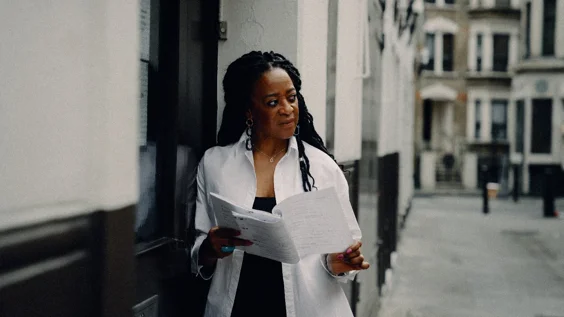Negotiating Rates
Video games is a hugely successful and lucrative global multi billion-dollar industry. However, pay levels in the UK have stagnated and not kept up with the rate of inflation. In the UK in the mid-1990s, the agreed buyout for performers was set at £500 if they recorded 50 lines or more. However, despite the significant evolution of the performer's role in video games over the past three decades, the buyout has not kept pace with these changes and has even decreased in some cases. Moreover, rates in the UK are significantly lower than those in the United States and Canada, despite our members being engaged by the same global companies.
Please see Equity’s Video Games Recommended Rate Card, which we have published in the absence of collectively bargained agreements. The rates are minimum fees and are upwardly negotiable between a performer (or their agent) and the engager. Please encourage AAA, indie and low budget productions that you work with to contact Equity to discuss these rates and other contractual arrangements.
Contracts
Contracts are an essential aspect of conducting business in the UK. A contract serves as a record of commitments for both parties. They provide certainty, protect the interests of both parties, and help to avoid disputes. However, we know that many video game performers are not issued with a contract, despite asking for one. If you are not offered a contract, ask for one and make sure this is signed before the engagement takes place.
Payment terms
When you are negotiating your contracts, we recommend that you seek to clarify the payment terms for the session fee and the usage buyout. If these terms are missing from the contract, insist that they are added.
We also advise that you seek to set out the milestones/deadlines that trigger payment in your contract and invoice. Performers should be conscious that the production of a video game can take years to complete, whilst some projects get cancelled or are never completed. When defining the payment milestones as part of the contract negotiation, we recommend that you refuse terms which are based on the completion of the game. Instead, fees should either be paid upfront or in increments throughout the contractual period.
To ensure timely payment, you should agree with the engagers in advance the timeframe for payment (e.g. 28 days (20 working days) of submission of the performers’ invoice) and how the fees will be processed, including invoice requirements (e.g. purchase order number, project code, point of contact etc). This information should be marked clearly on your invoice.
Late Payment
Not receiving the payment you were expecting is a stressful scenario and the union is here to support you in recovering an unpaid invoice. We recommend that you negotiate a penalty clause within their contract which covers late payment. Equity’s Cinema Film Agreement, for example, has a late payment penalty of £10.00 per day subject to a maximum of £1,000.00 per Artist.
In the event of late payment of fees, you are entitled to charge interest on any overdue invoices at the statutory rate set out in the Late Payment of Commercial Debts (Interest) Act 1998. This interest rate is 8% above the base rate of the Bank of England. Please read the government guidance for more information about interest on late commercial payments. There are online calculators you can use such as dontpaylate.co.uk.
Obtaining clarity on the commercial terms of your engagement
During the hiring process, it is important that you try to obtain as much information as you can about the commercial terms of your engagement. If this information is not already provide by the engager, please ask the following questions:
- What is the Code name of the project?
- What is the overall production budget?
- What is the length of Performer’s role?
- What is the genre (as one or more of): a) fighting/shooter; b) role playing game; c) simulation/racing/sports; or d) puzzle/casual/kids & family/strategy
- Is the project based upon a previously published intellectual property, including any film, television program, novel, play, videogame, or other work?
- Am I being asked to reprise a role from a prior game?
- Will I be credited?
- Has a risk assessment been carried out?
- Will my performance data be scanned and used for other projects, or for machine learning (AI)?
Voiceover (only) should ask the following question:
- Will a script be available when the session is confirmed?
- Will there be any use of unusual terminology?
- Will I be required to voice profanity, content of a sexual or violent nature, or racial slurs;
- Will I be required to yell, scream, voice accents, sing and or create noise?
- Will memorisation be required?
- Does the company have valid performance insurance to cover the recording periods for their projects?
Performance capture (only) should receive the following information:
- Will a call sheet be provided outlining the schedule of scenes that
- will be recorded and breaks during that session?
- Will cue cards or other prompting devices be used?
- Will I be required to do stunts?
- Will I be required to do anything that involves fighting or physical action and am I being hired for any specialist performance skills?
- Will there be a fully private dedicated changing room/area with a lockable door?
- Will I be required to use props, stilts or arm extenders?
- Does the employer have valid performance insurance to cover the safety of actors on set?
Credits
There is no standard approach to credits both in terms of style and how they are presented. Credits are typically presented through a game menu and/or once the game is completed. When you are negotiating your contract, ensure a credit is specified.
Promotion
Performers will often be engaged to promote the release of a video game. Before you accept any work, we recommend seeking clarity from the engager if they will require your services to:
- make publicity stills, promos, or trailers
- attend conventions, fan meetings, autograph sessions, etc., or make live appearances to promote a game, as yourself or a character(s) you portray
- blog, tweet, etc., as yourself or a character(s) you portray
If you will be required to do any of the above, please use the Equity Video Games Recommended Rate Card to negotiate an appropriate fee.



